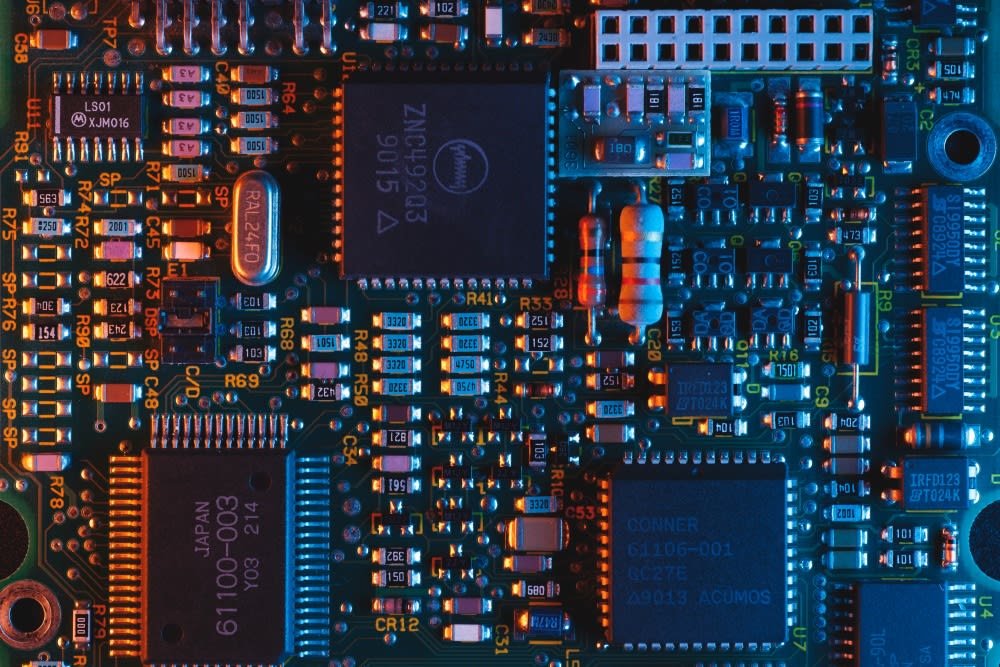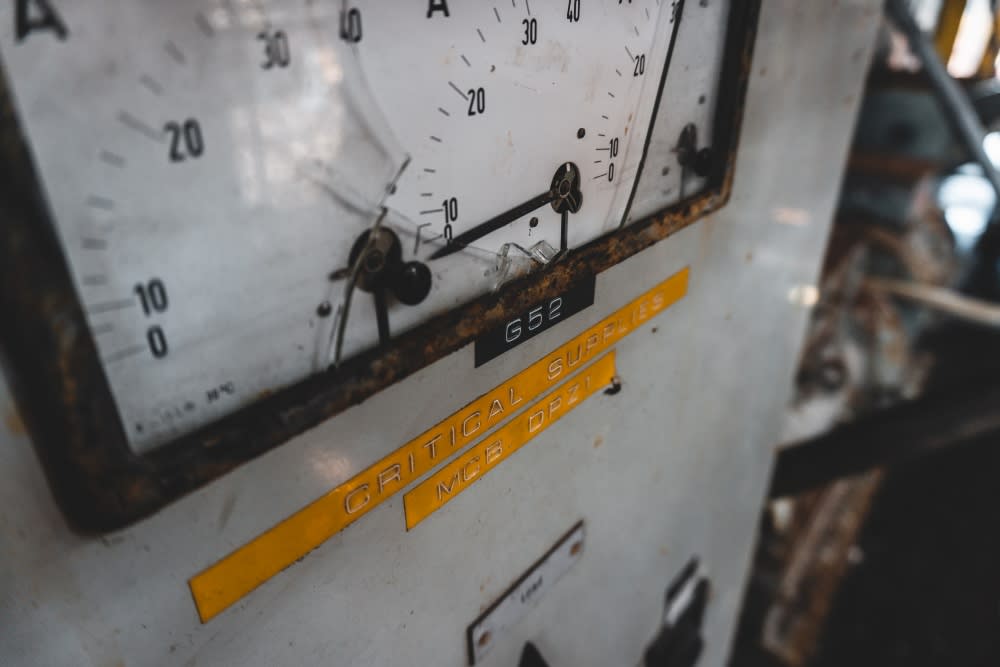- Published 22 Feb 2024
- Last Modified 6 Mar 2024
- 7 min
Applications of Ammeters in Industrial Settings: How Are They Used to Measure Current?
Discover the critical role of ammeters in industrial settings. Ensure safety, efficiency, and sustainability with RS's precision amp metres.

In the complex and hazard-prone world of industrial environments, the precise measurement and monitoring of electrical currents is not just a technical necessity but a critical safety measure. As a matter of fact, the importance of this task is underscored by recent statistics from the Electrical Regulatory Authorities Council. According to reports, between 1 July 2021 and 30 June 2022, there were nine fatalities associated with electrical incidents in Australia and New Zealand. This included both electrical and non-electrical workers, as well as a member of the general public. These incidents highlight the need for rigorous electrical safety measures in industrial settings.
This is how and where ammeters come into play. An ammeter is a crucial tool in any industrial environment, designed to accurately measure the flow of electric current in a circuit. Its role in monitoring and detecting irregularities in current flow, preventing electrical hazards and contributing to the overall safety and efficiency of industrial operations. But what exactly are they, and what is the significance of ammeters?

What is an Ammeter?
An ammeter, short for 'ampere metre', is a device designed to measure the flow of electric current in a circuit, with the unit of measurement being the ampere or amp. In addition, circuit diagrams employ a distinctive symbol of an ammeter: a circular shape enclosing an uppercase "A."
Essentially, an ammeter's purpose is to gauge the current, specifically focusing on two aspects: 'draw', which is the current's flow in a given circuit, and 'continuity', indicating the consistency and uninterrupted flow of this current. These measurements are crucial in identifying electrical issues within a circuit. For instance, a high current draw could signal a malfunction or a short circuit, whereas low levels might suggest disruptions or unusual electrical resistance. Given these functions, ammeters are often employed in checking outlets or sockets during repair work or when replacing fuses.
However, it's important to distinguish ammeters from voltmeters; while ammeters measure the current, voltmeters assess the voltage, or electrical potential difference, across two points in a circuit. This distinction is vital for accurately diagnosing and addressing electrical issues in industrial environments.
What Does an Ammeter Measure?
As mentioned, an ammeter is specifically designed to measure electric current, quantifying it in amperes. In a practical sense, it assesses the rate at which electric charge flows through a conductor in a circuit. This measurement is fundamental to understanding the behaviour of electrical systems, particularly in industrial contexts where precise current management is crucial.
Ammeters can also accurately track both direct current (DC) and alternating current (AC), allowing for versatility in various industrial applications. For example, DC ammeters are key in systems powered by batteries or direct current sources, while AC ammeters are essential in managing and monitoring systems operating on alternating current. This ability to measure and analyse current flow is integral to maintaining the efficiency and safety of electrical equipment in industrial settings.
Significance of Ammeters in Industrial Applications

Ammeters hold a place of critical importance in industrial applications. The accurate data provided by this instrument is crucial in various aspects of industrial operation, from ensuring safety to optimising energy consumption. Consider these uses:
1. Contribute to Safety in Industrial Environments
By accurately measuring current flow, ammeters can identify potential electrical hazards before they escalate into serious problems. For instance, an unusually high current reading might indicate an overload or short circuit, prompting immediate action to prevent equipment damage or fire risks. Similarly, low current readings can signal interruptions or faults in the circuit, which could lead to equipment failure or operational disruptions. By enabling early detection of these issues, ammeters can help prevent accidents and ensure compliance with safety regulations.
Simply put, regular use of ammeters for system checks and maintenance ensures that electrical systems are operating safely and efficiently, safeguarding both the workforce and the equipment.
2. Energy Efficiency in Industrial Processes
Ammeters are also instrumental in promoting energy efficiency within industrial processes. By providing accurate measurements of current, they allow for the close monitoring and analysis of energy use. This data is invaluable in identifying areas where energy consumption can be optimised, leading to more efficient and cost-effective operations. For example, ammeters can help in detecting inefficiencies in motors or machinery, indicating where adjustments or repairs can lead to energy savings.
Additionally, in the context of sustainable energy practices, ammeters are used to monitor and optimise the performance of renewable energy systems. By ensuring these systems are operating at peak efficiency, ammeters contribute to reducing overall energy wastage and support industrial efforts in sustainability.
Ammeters Integrated into Automation and Control Systems
The integration of ammeters into industrial automation and control systems, particularly with Programmable Logic Controllers (PLCs), marks a significant advancement in industrial operations.
Ammeters, when connected to PLCs and other control systems, provide critical real-time data about the current flowing through various components of the machinery. This integration allows for more sophisticated monitoring and control over industrial processes.
This seamless amalgamation of ammeters with automation systems significantly enhances productivity and operational efficiency. By continuously monitoring the current, ammeters can instantly flag any irregularities, allowing for immediate adjustments or interventions. This proactive approach minimises downtime and maximises machine utilisation. In automated production lines, for instance, the data from ammeters can be used to fine-tune the operation of motors and other electrical components, ensuring they operate within optimal parameters. This not only extends the lifespan of the equipment but also ensures consistent product quality.
Moreover, in an era where industries are increasingly leaning towards smart manufacturing, the role of ammeters in automation becomes even more pivotal. Their integration into control systems contributes to the creation of highly responsive and efficient industrial environments, where every aspect of the production process is optimised for peak performance.
Empower Your Industrial Operations with RS
In summarising the pivotal role of ammeters in industrial settings, it's clear that these instruments are more than just tools for measuring current; they are essential components for ensuring safety, efficiency, and sustainability in your operations. From identifying electrical hazards to optimising energy usage and integrating it into advanced automation systems, ammeters prove to be indispensable in the modern industrial landscape.
RS recognises the critical importance of reliable and precise current measurements in industrial applications. That's why we offer a comprehensive selection of amp metres designed to meet the diverse needs of the industry. Whether you're looking for a standard DC amp metre or a sophisticated system integrated with automation, RS has the right solution for you.
With RS, you can be confident that you're choosing a partner committed to providing quality and innovation in all aspects of industrial electrical measurement.
Popular Ammeter Brands
Murata
Murata's space-saving, energy-efficient power solutions play a pivotal role in promoting widespread energy conservation. Their tailored offerings span a wide spectrum, serving industries like information technology, communications, industrial sectors, healthcare, and various other markets, ensuring optimised solutions for diverse applications.
Related links
- The Critical Role of Precision Instruments in Australia
- The Importance of Air Quality Monitors in F&B Facilities
- The Critical Role of Push Button Switches in Mining Operations
- Introduction to Micrometers in Industrial Settings
- Enhancing Connectivity: Tips for Effective Electrical Cable and...
- Site Transformers
- A Complete Guide to Ammeters
- Cable Gland Plugs